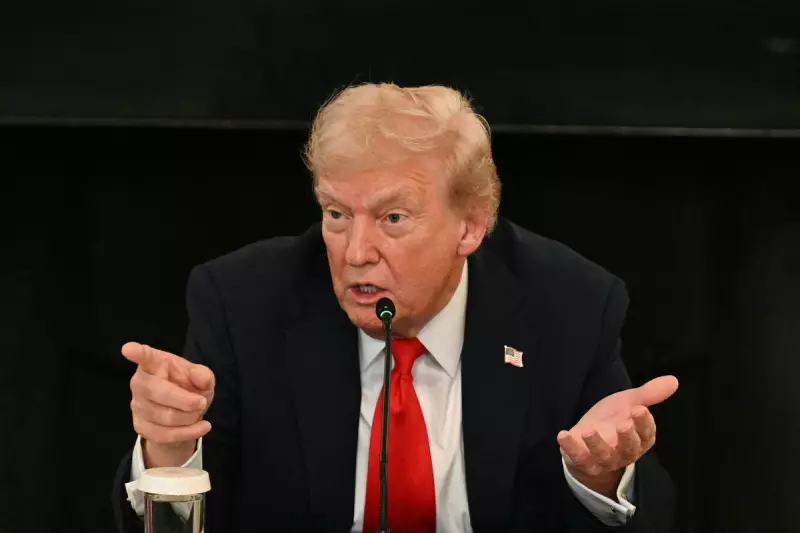
In a move that has reignited fierce political debate, former President Donald Trump has declared his intention to push for Antifa to be officially designated as a terrorist organisation. The controversial statement emerged during a private roundtable discussion, where Mr Trump characterised the loosely-organised anti-fascist movement as a significant threat to national security.
Private Roundtable Reveals Hardline Stance
The former president's comments came during what was described as an "off the record" gathering with close allies and conservative figures. According to sources familiar with the discussion, Mr Trump expressed frustration that Antifa had not been formally designated as a terrorist organisation during his administration and suggested this would be a priority if he returns to power.
What Exactly is Antifa?
Antifa, short for "anti-fascist," represents a decentralised network of activists rather than a single, unified organisation. Participants typically oppose what they perceive as far-right extremism and white supremacy through direct action, including protests and counter-demonstrations. The movement has no formal leadership structure or membership roster, making it fundamentally different from traditional terrorist organisations.
Legal and Constitutional Concerns Raised
Legal experts have been quick to highlight the significant constitutional hurdles such a designation would face. Under current US law, the terrorist designation applies specifically to foreign organisations, not domestic groups. Attempting to label a domestic movement as terrorist would likely trigger immediate legal challenges centred on First Amendment protections of free speech and assembly.
Historical Context and Previous Attempts
This isn't the first time Mr Trump has sought to target Antifa through official channels. During his presidency, his administration repeatedly attempted to frame the movement as a terrorist threat, particularly following protests against racial injustice. These efforts faced substantial pushback from legal experts, civil liberties organisations, and even some within his own administration who questioned both the legality and wisdom of such a move.
Mixed Reactions from Political Sphere
The proposal has drawn predictable divisions along political lines. Conservative supporters have applauded the hardline approach, characterising Antifa as a dangerous extremist network. Meanwhile, civil liberties advocates and progressive politicians have condemned the move as an alarming attempt to criminalise political opposition and legitimate protest.
Broader Implications for Protest Rights
Beyond the immediate controversy, this development raises profound questions about the boundaries of protest and political expression in America. The attempt to designate a domestic anti-fascist movement as terrorist represents an unprecedented escalation in the political weaponisation of counter-terrorism mechanisms, potentially setting a concerning precedent for how future administrations might treat political opponents.






